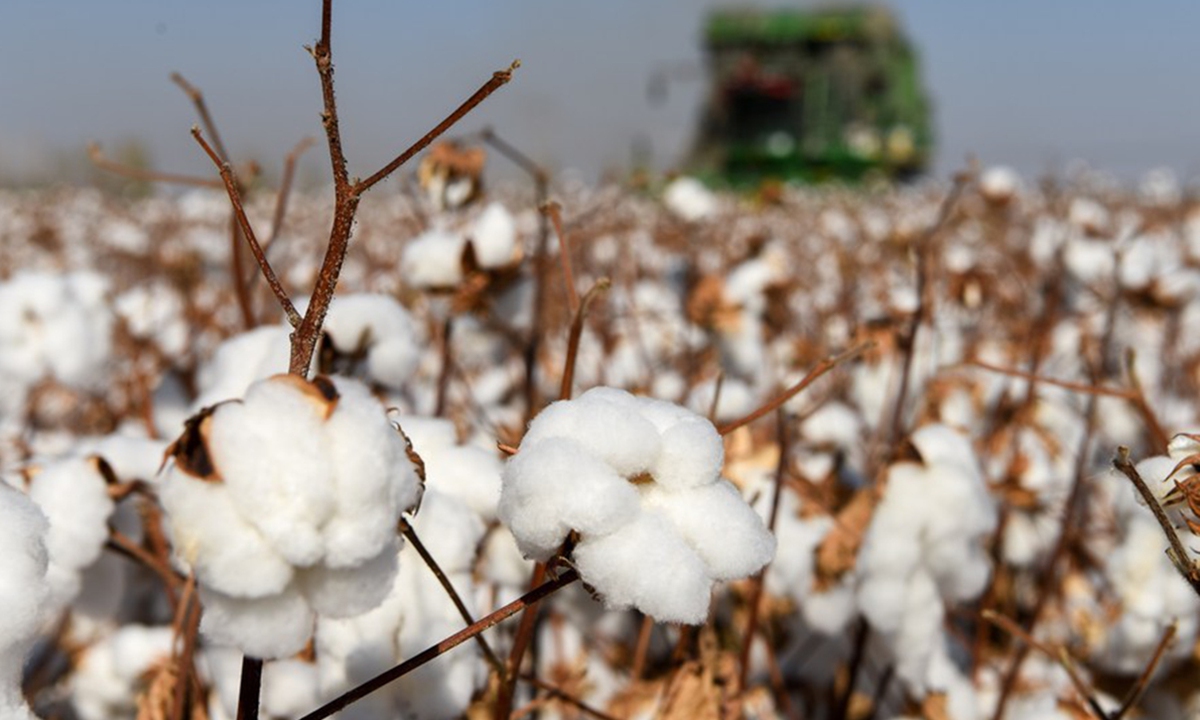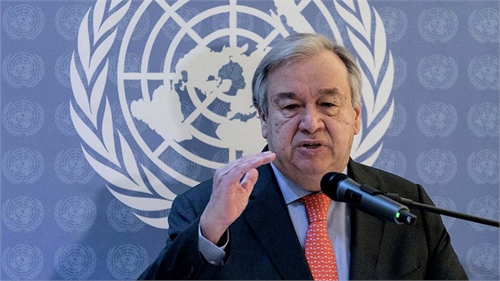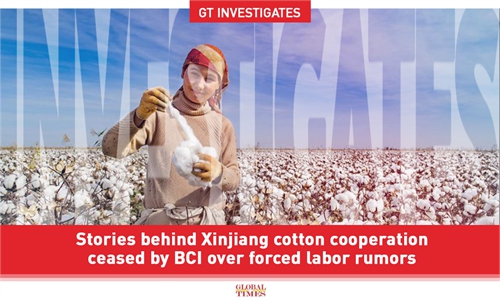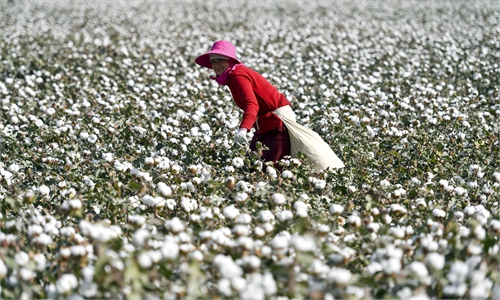
Modern agriculture gaining ground in Xinjiang's cotton fields
The Swedish retailer H&M chain is being boycotted on Chinese social media for a statement the company made last year, alleging that "We do not work with any garment manufacturing factories located in the Xinjiang Uygur autonomous region, and we do not source products from this region."Following this, I posted a video online criticizing H&M that they should focus more on their quality issues. It went viral. From my observation, my post resonated with the netizens because the general Chinese people know the real situation of the country and understand how unreasonable and absurd the company's accusations against Xinjiang are.
Born and raised in Hong Kong Special Administrative Region, I am used to the Western media's efforts to smear my country. With the rapid development of China's national strength, Western media have intensified their smear of Xinjiang-related issues in recent years. They often fabricate rumors and call white "black."
The Western media's smear of Xinjiang includes the so-called "forced labor" and "products of slavery." This is an excuse to ban cotton products from Xinjiang.
In addition to H&M, a number of international brands represented by Nike have been exposed that they have also made statements to divorce themselves from Xinjiang cotton based on fabricated lies. These companies all share one thing in common: They are members of the Better Cotton Initiative (BCI).
However, as recently as January last year, the BCI said it does not have any, "evidence of forced labor on farms within BCI programs" in Xinjiang and it would continue its role in Xinjiang. However, in March 2020, BCI decided to suspend activities with licensed farmers in Xinjiang. Why was there a sudden U-turn in just two months?
In February, Western media intensified their accusations of "cultural genocide" against Xinjiang based on the published Karakax List, the leak of so-called Chinese government documents. The Australian Strategic Policy Institute released a report titled "Uygurs for sale" in March, presenting a series of "evidence of forced labor" in Xinjiang.
Since then, some Western media and politicians have devoted themselves to making issues out of Xinjiang-related affairs. Some US lawmakers then called for a halt to imports of Xinjiang products. Different political forces and media in the West also began to exert pressure on the organizations and companies involved.
The BCI is partly funded by the US Agency for International Development. The organization focuses on crop protection, water stewardship, the health of the soil and many other non-quantifiable objective criteria. In this way, when the capital behind it needs them to carry out political suppression, BCI can raise trumped-up charges at any time. It has degraded into a puppet to be manipulated. Can we trust human rights narrated in the mouths of puppets?
Even though the speed of refuting slanders is far behind that of rumor-mongering, the groundless accusations made by institutions and firms impacted or even controlled by Western forces have already been torn down.
For example, the so-called forced labor rhetoric is totally unfounded, as over 90 percent of cotton fields in northern Xinjiang are now mechanized, and the mechanization of cotton harvesting in southern Xinjiang is also increasing year by year. Uygur female representatives from Xinjiang recently made solemn statements at the 46th session of the United Nations Human Rights Council (UNHRC). Local people's sharing of their personal experiences is far more convincing in comparison to lies weaved by those Western puppet institutes.
In recent years, the US and some other Western countries have constantly hyped up the human rights issue of Xinjiang Muslims, but they have not really taken actions to protect ethnic minorities in their own countries. Their saying that they care about human rights is simply an excuse motivated by political purposes. They don't care about the human rights of ethnic minorities. Their purpose is just to suppress China's development.
Western countries should not set themselves against China or even demonize our country just because they are anxious about our economic development. What they really need to do is to learn from China's strengths. These include the unity and solidarity of all ethnic groups to build a harmonious nation — which are a core reason behind China's rapid development.
The author is a post-1990's Hongkonger and political commentator. opinion@globaltimes.com.cn



